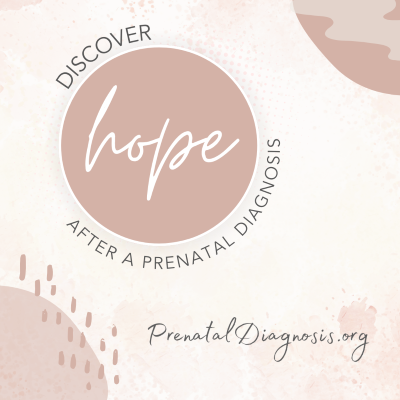Displaying items by tag: prenatal diagnosis
The Reality of a Prenatal Diagnosis and the Blessing Behind It
by Gary Thome, Heartbeat International Board Member
Recently, a friend shared a back-to-school picture of her son Michael, heading into the 4th grade wearing his ever-present smile. As the youngest of four children, he is the joy of his family. His Down Syndrome condition has not slowed down his zeal for life. In fact, my friend says “he’s been the biggest blessing in our lives and in our family.”
Many parents who receive a prenatal diagnosis of Down Syndrome (Trisomy 21) or any of a myriad of prenatally-detected conditions are offered abortion, often with little or no information about available treatment options or ongoing support. In the case of my friend, her doctor told her he was “sorry” her son has Down Syndrome. “It’s sad that that doctor and his staff thought my child was less worthy to be in this world,” she added.
Scripture tells us that “God is love” (1 John 4:8). If God identifies Himself as love, then we are most in the image and likeness of God (Genesis 1:26) when we share and receive love. God is not a physical being, He is spiritual. Therefore, we cannot say that a particular arrangement of human chromosomes or genes is more or less in God’s image and likeness. It is our spiritual trait to be loving that enables us to fully live out our identity as being made in God's image and likeness.
My friend said when she did an Internet search on Down Syndrome, she found sources “talking about all the things you’re going to give up; how they will have physical disabilities, mental disabilities, and low muscle tone. But what they don’t tell you is what you are going to gain. And you gain a greater capacity to love. And they don’t tell you it makes you a better person.” She added, “We have learned a lot about what love truly is from Michael.”
Certainly, there are challenges to raising a child with special needs. The news that a child may have a chromosomal disorder, genetic condition, or other structural malformation can be scary for parents. Often the news of a prenatal diagnosis is delivered in a way that is traumatizing to parents and uses dehumanizing language to describe their unborn child.
We also recognize that the news of a prenatal diagnosis is a different sort of pregnancy crisis. Parents are particularly vulnerable to abortion, which doctors often offer at the same time they deliver the news of the diagnosis. Yet research indicates parents are better off emotionally when they choose to carry their baby to term, even if the baby is not expected to live long after birth.
When offered comprehensive support, 80% of parents will choose life.1
In partnership with other organizations with expertise on this topic, we have created the website PrenatalDiagnosis.org as a resource for parents who receive a prenatal diagnosis of any sort. The website provides essential information for parents and more importantly, provides referrals to specially-trained pregnancy help organizations to support these parents and their particular needs. The support offered includes trauma-informed care, assistance with navigating the medical system, developing a birth plan, and more.
When encountering parents who are struggling with the news of a prenatal diagnosis, please see PrenatalDiagnosis.org as a resource. We are also continuing to build out this specialty network of pregnancy help providers. If you feel called to become one of our parent care coordinators, click here to learn more. While small in percentage compared to unplanned pregnancies, these children—made in God’s image—and their families play an important part in building a Kingdom of love.
____________________________________________________

